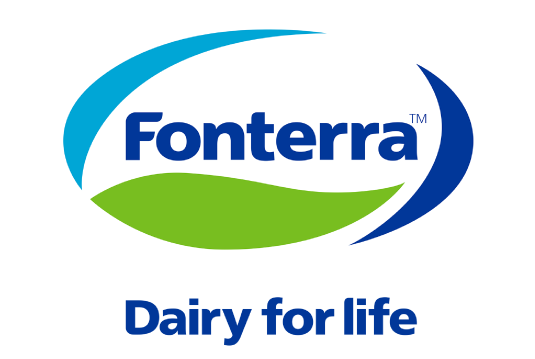Are all butters equal?

We answer all your important butter-related questions.
Are all butters equal?
Definitely not. The quality of the butter is determined by the quality of the milk, what the cow eats, the breed of cow and the time of year. These factors will also make a difference to the flavour profile of butter. New Zealand is a temperate climate and the cows are outdoors in the pasture all year round.
What are the key ingredients of butter?
Butter is made from ALL natural ingredients: fresh cream separated from cow’s milk (milk fat, milk proteins, minerals, lactose) and sometimes salt. It takes approximately 25 litres of milk to make 1 kilogram of butter.
Why is butter from New Zealand yellow?
The yellow-orange colour of New Zealand butter is perfectly natural. A natural pigment, beta-carotene, provides this yellow colour. The presence of this carotene is also why butter is a good source of Vitamin A. Cows that have been fed green fodder – such as grass – will tend to have more carotene in their milk, and therefore give yellower butter than cows fed on dry feed, like grains.
I have heard that butter is saturated fat. Is that bad for you?
Studies conducted in the past few decades show that neither saturated fat nor dietary cholesterol cause harm in healthy humans. (1, 2, 3, 4, 5) Not all saturated fats act in the same way. While most increase LDL (‘bad’) cholesterol, they also increase HDL (‘good’) cholesterol and lower triglycerides when compared to refined carbohydrates. Some saturated fats even have a neutral effect on blood lipids.(6) Nutritional guidelines previously grouped saturated fats and trans fats together as ‘bad fats’. It is now accepted that saturated fats have a more neutral effect on health.
What about the Low Fat diet recommendations?
It’s true that fat has more calories per gram than protein or carbohydrates. But, it’s not all about calories – the different composition of foods, as well as their energy content, influence complex signals that tell our body to stop eating.
Recently, scientists have challenged the entire low-fat concept, stating that “Diets high in fat do not account for the high prevalence of excess body fat in Western countries; reductions in the percentage of energy from fat will have no important benefits and could further exacerbate this problem.”(7)
In fact, the past 40 years could be considered a low fat nutritional experiment for America – and by almost every measure they are sicker than ever. More than one third of the country is now obese, making the US one of the fattest countries in an increasingly fat world.(8)
Why is fat important for my diet?
It is important to include a variety of healthy oils and fats in your diet. Together, they work to supply your body with essential fatty acids for hormone balance, heart health, good vision, healthy cells and energy.
Fats also carry and help absorb essential fat-soluble vitamins such as vitamins A, D, E and K.
So, I should eat plenty of butter then?
A moderate butter intake can be part of a healthy diet. However, just because butter is perfectly fine in reasonable amounts, it does not mean that you should go out of your way to eat more of it. Use it for cooking or in recipes that call for it, but don’t add excessive amounts of butter to your food because you expect that will improve your health. Keep it reasonable.
Content courtesy NZMP team.
1) Siri-Tarino, PW., Sun, Q., Hu, FB., & Krauss RM. Meta-analysis of prospective cohort studies evaluating the association of saturated fat with cardiovascular disease. Am J Clin Nutr. Mar 2010; 90(3):535–46. doi: 10.3945/ajcn.2009.27725. Epub 13 Jan 2010.
2) Chowdhury, R., Warnakula, S., Kunutsor, S., Crowe, F., Ward, HA., Johnson, L., Angelantonio, ED. Association of Dietary, Circulating, and Supplement Fatty Acids with Coronary Risk: A Systematic Review and Meta-analysis. Ann Intern Med. 2014; 160(6):398–406. doi: 10.7326/M13–1788.
3) Hamer, HM., Jonkers, D., Venema, K., Vanhoutvin, S., Troost, FJ., & Brummer, RJ. Review article: the role of butyrate on colonic function. Aliment Pharmacol Ther. 15 Jan 2008; 26(2):104–19. Epub 25 Oct 2007.
4) Mente A., de Koning L., Shannon HS., & Anand SS. A systematic review of the evidence supporting a causal link between dietary factors and coronary heart disease. Arch Intern Med. 13 Apr 2009; 169(7):659–69. doi: 10.1001/archinternmed.2009.38.
5) Ravnskov, U. The questionable role of saturated and polyunsaturated fatty acids in cardiovascular disease. J Clin Epidemiol. Jun 1998; 51 (6):443–60.
6) Astrup A, Dyerberg J, Elwood P et al. The role of reducing intakes of saturated fat in the prevention of cardiovascular disease: where does the evidence stand in 2010? Am J Clin Nutr. 93:684–88.
7) Willet W. Dietary fat and obesity: lack of an important role. Scandinavian Journal of Nutrition 2003; 47(2):58–67.
8) Walsh, B. Don’t Blame Fat. Time Magazine. 23 June 2014.

